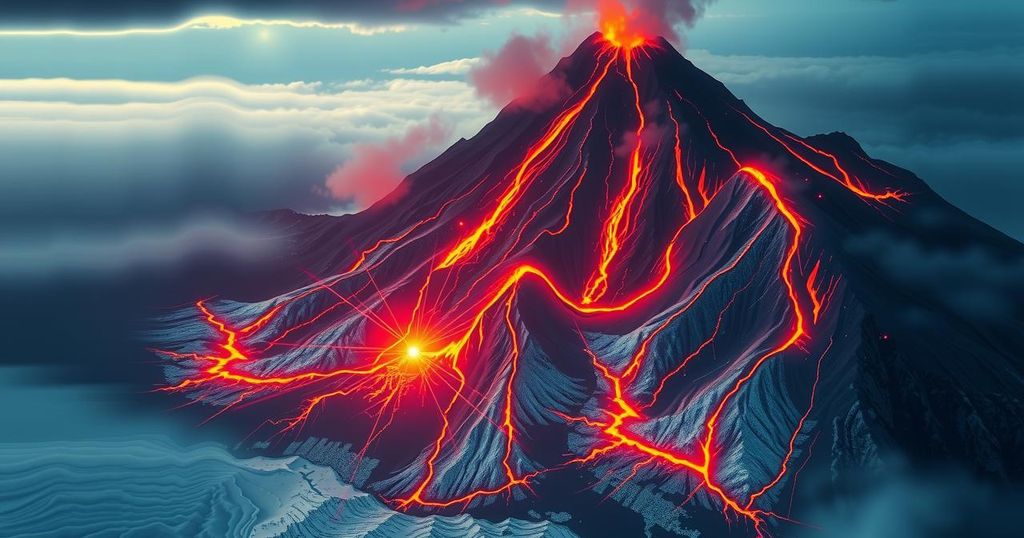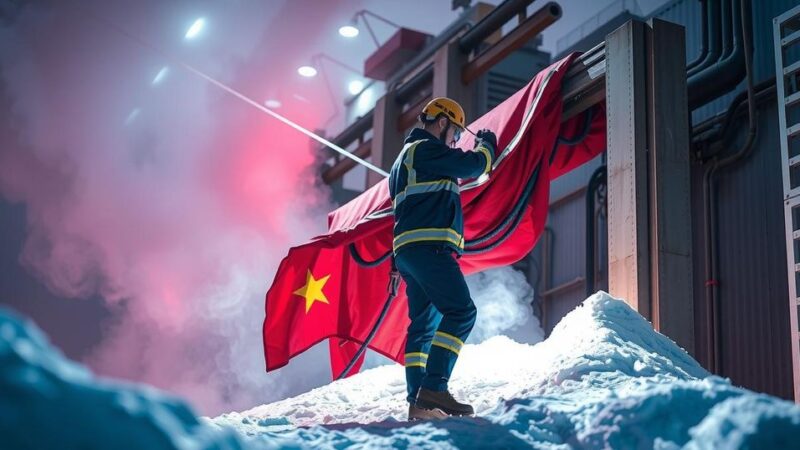Scientists express concern over the potential for another massive volcanic eruption comparable to Mount Tambora in 1815, which drastically cooled temperatures and triggered global disasters. A recent risk assessment suggests a 1-in-6 chance of a major eruption this century, with disturbingly amplified effects due to climate change. Experts urge for increased preparedness to mitigate the potential chaos that could ensue from such an event.
The anticipation of a monumental volcanic eruption has prompted scientists to warn of chaos unprepared by current societal structures. Historically, Mount Tambora’s eruption in 1815 sent shockwaves around the world, cooling global temperatures and triggering a series of catastrophes that led to mass starvation and significant societal disruptions. Today, experts evaluate geological data and predict a notable possibility of a similar volcanic event occurring this century, influencing climate patterns drastically in a world already grappling with climate change.
The repercussions of a massive eruption today would be magnified due to increased population density and ongoing climatic alterations. Professor Markus Stoffel from the University of Geneva states, “The question is not if, but when,” indicating the urgency of understanding these geological events. Past eruptions have significantly lowered global temperatures, with Tambora specifically causing a drop of at least 1 degree Celsius. Scientific assessments suggest that larger eruptions can disrupt monsoon seasons and create lasting atmospheric changes.
Modern research indicates that the dynamics of aerosol particles resulting from volcanic eruptions may have a greater cooling impact now than in earlier periods due to the heightened air circulation caused by climate change. The subsequent aerosol spread could reflect more sunlight and potentially cool regions more efficiently than in prior historical instances. Nevertheless, a massive eruption can also exacerbate existing climatic challenges, given the underlying issues concerning food security and economic stability.
Throughout history, the threat posed by volcanoes remains unpredictable, with many regions, including Indonesia and the Yellowstone area, under observation for potential activity. While scientists stress that preparation cannot prevent eruptions, strategies can be developed to mitigate potential fallout. Professor Stoffel emphasizes the necessity of preparedness and planning for evacuations, aid responses, and securing food supplies in the event of a volcanic crisis. To neglect the potential for such disasters, even if statistically unlikely, would leave humanity vulnerable to unforeseen catastrophes.
The phenomenon of massive volcanic eruptions has historically transformed global climates and societal structures. The eruption of Mount Tambora in 1815, for instance, resulted in widespread climatic upheaval, known as the ‘year without a summer’, where global temperatures plummeted, causing crop failures and significant human suffering. Scientists today assess geological indicators and use historical data to understand potential future eruptions, particularly in the context of our rapidly changing climate and increasing population density.
In conclusion, the looming threat of a significant volcanic eruption necessitates urgent attention and preparedness from global societies. Historical data illustrates the potential catastrophic consequences of such events, particularly in contemporary times marked by climate change and population growth. Experts call for comprehensive planning and risk assessment strategies to safeguard vulnerable populations and mitigate the economic fallout from a potential volcanic crisis. Ignoring the implications of upcoming volcanic activity would risk severe repercussions for humanity’s stability and resilience.
Original Source: www.egyptindependent.com







